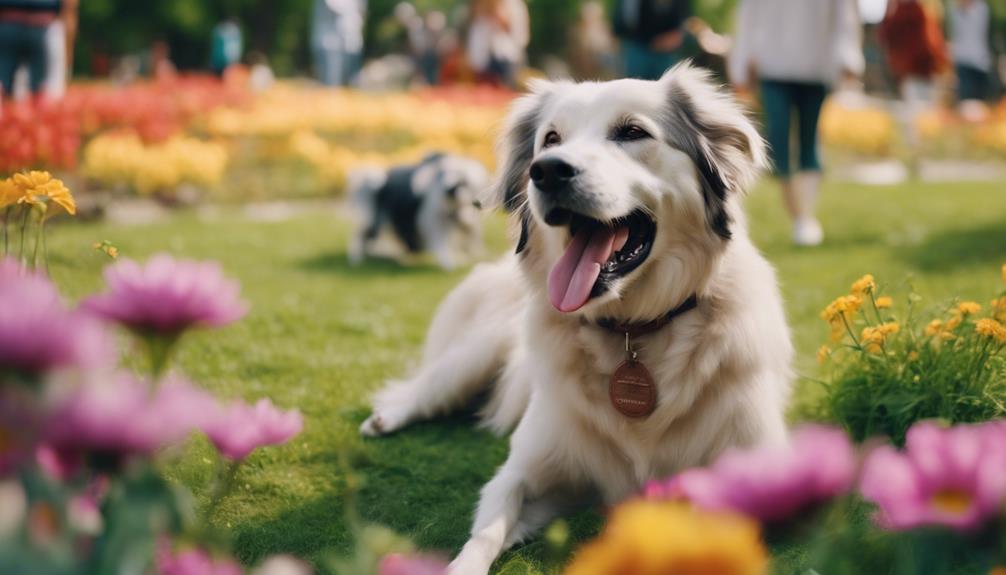Socializing an adult dog is a critical component of their overall well-being, yet many owners overlook this vital aspect. Effective socialization can significantly enhance your dog's adaptability and confidence, contributing to a more harmonious relationship between you and your pet. By employing gradual exposure techniques and positive reinforcement, you can create a supportive environment that encourages positive interactions. However, understanding the nuances of your dog's behavior and the importance of monitoring their comfort levels is equally essential. What strategies can you employ to ensure a safe and successful socialization journey for your canine companion?
Understanding Corgi Behavior

Understanding Corgi behavior is essential for effectively socializing these intelligent and spirited dogs, as their unique traits can significantly influence their interactions with both people and other animals.
Corgis are known for their playful nature and strong herding instincts, which can lead to certain corgi quirks. For instance, they may exhibit a tendency to nip at heels or herd other pets, reflecting their breed traits.
Additionally, Corgis are often very vocal, using barking as a way to communicate their needs or excitement. It is crucial to recognize these behaviors to promote positive socialization experiences.
Observing their body language, providing consistent training, and engaging in interactive play helps Corgis thrive in various social situations, enhancing their overall well-being and relationships.
Importance of Socialization
Socialization is a critical component in ensuring that adult dogs, including Corgis, develop well-rounded behaviors and positive interactions with their environment.
The benefits of socialization are numerous; they include improved confidence, reduced anxiety, and better adaptability to new situations. When dogs engage with various people, animals, and settings, they learn essential skills that contribute to their overall well-being.
Conversely, the risks of isolation can be severe. Dogs that lack socialization may exhibit fear or aggression, struggle with anxiety, and face challenges in forming positive relationships.
By prioritizing socialization, dog owners can foster healthier, happier companions, enhancing the quality of life for both the pet and the owner.
Ultimately, socialization is vital for a dog's development and happiness.
Gradual Exposure Techniques
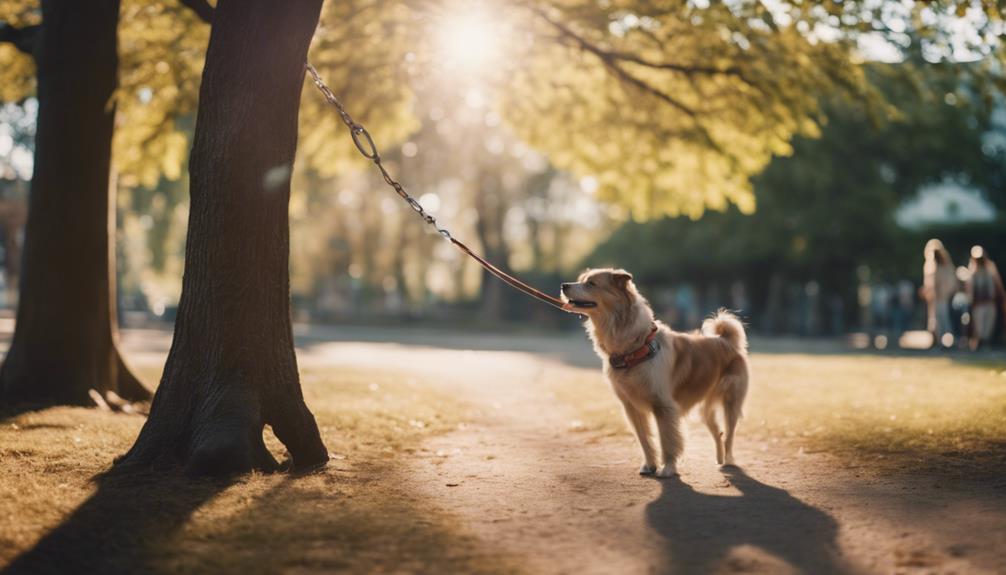
To effectively enhance an adult dog's social skills, gradual exposure techniques can be employed to introduce them to new experiences and environments in a controlled manner.
This process involves desensitization exercises, which help reduce a dog's anxiety by slowly acclimating them to specific stimuli. For example, if a dog is fearful of strangers, start with gradual introductions, allowing the dog to observe people from a distance before moving closer.
Key steps include:
- Identify triggers that cause anxiety.
- Create a controlled environment where the dog feels safe.
- Increase exposure to triggers gradually, monitoring the dog's comfort level.
Positive Reinforcement Methods
Employing positive reinforcement methods is essential for encouraging desirable behaviors in adult dogs during socialization. These techniques create a supportive environment where dogs feel safe and motivated to learn.
Two effective methods include clicker training and treat rewards, which can significantly improve your dog's social skills.
- Clicker Training: This method uses a sound to mark desired behaviors, helping dogs understand what is expected.
- Treat Rewards: Offering treats as a reward reinforces good behavior, making the learning process enjoyable for your dog.
Socializing With Other Dogs
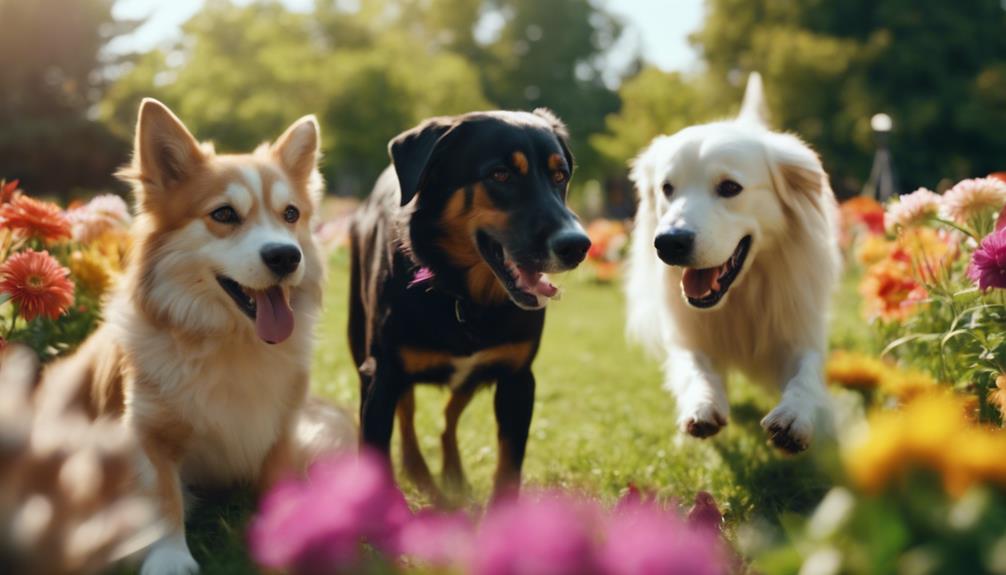
Introducing your adult dog to other dogs is a crucial step in fostering their social skills and overall well-being.
Begin by practicing dog park etiquette, which includes keeping your dog on a leash until they are comfortable. Observe how your dog interacts with others and choose appropriate playmates. Group playdates can create a controlled environment for your dog to meet others gradually.
Ensure that the dogs are well-matched in size and energy levels to promote positive interactions. Always supervise these encounters to intervene if necessary.
Use treats and praise to reinforce good behavior during these social experiences. By consistently exposing your dog to other dogs, you can help them develop confidence and reduce anxiety in social situations.
Meeting New People
Socializing your adult dog with new people is equally important, as positive interactions can enhance their comfort and behavior in diverse situations. Establishing proper greeting etiquette is essential in these encounters, allowing your dog to build confidence.
Consider the following tips for success:
- Introduce slowly: Allow your dog to approach new people at their own pace.
- Encourage calm behavior: Reward your dog for relaxed interactions to reinforce positive experiences.
These strategies not only promote confidence building but also foster a sense of security for your dog, making future meetings with new people more enjoyable for everyone involved.
Safe Environments for Socialization
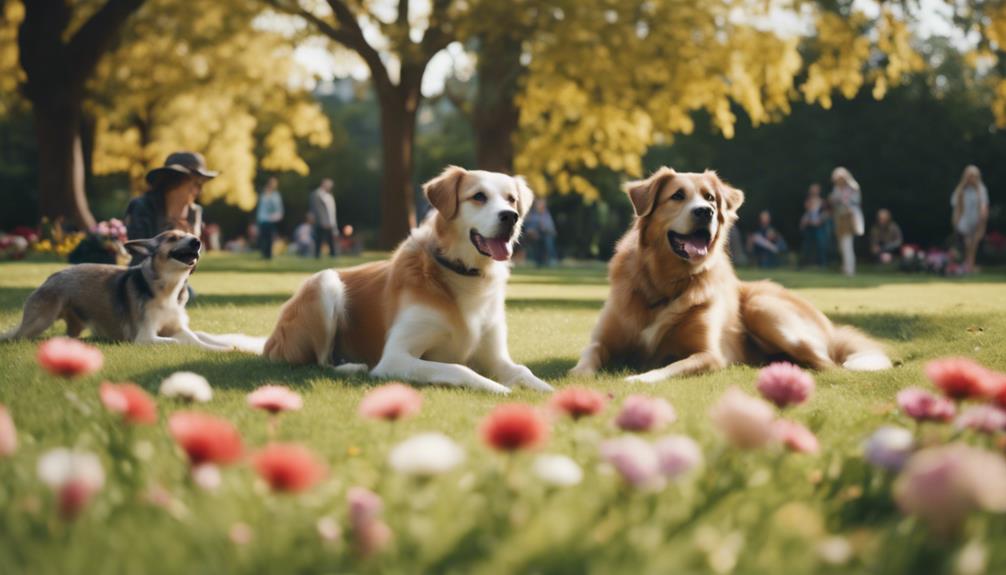
Creating a safe environment for your adult dog during socialization is crucial to facilitate positive interactions and reduce anxiety.
One effective approach is to begin in controlled settings, such as your home or a friend's yard, where your dog feels secure. Gradually introduce your dog to dog parks, which can provide valuable social experiences but may also be overwhelming.
When using dog parks, choose times when they are less crowded to minimize stress. Always supervise interactions and be ready to intervene if necessary.
Additionally, consider organizing playdates with well-mannered dogs, allowing your pet to build confidence in a low-pressure environment.
Signs of Stress in Corgis
Understanding the signs of stress in Corgis is crucial for their well-being and socialization.
These signs often manifest through specific body language cues, such as a lowered tail or tense posture, as well as changes in vocalization, including growling or whining.
Recognizing these indicators can help owners create a more comfortable environment for their pets, fostering positive interactions.
Body Language Cues
Recognizing body language cues in Corgis is essential for identifying signs of stress and ensuring their well-being during social interactions. Observing their body posture and tail position can provide valuable insights into their emotional state.
Signs of stress may include:
- Tucked tail: A sign of fear or anxiety, indicating that your Corgi is uncomfortable.
- Stiff body posture: When a Corgi stands rigidly, it may suggest that they feel threatened or uneasy.
Vocalization Changes
In addition to body language cues, vocalization changes in Corgis can also indicate signs of stress, providing further insight into their emotional well-being during social interactions.
Different vocalization types, such as barking, whining, or growling, can serve as vocalization triggers that signal discomfort or anxiety.
For instance, excessive barking may suggest that a Corgi feels threatened, while persistent whining could indicate fear or a need for attention.
It is essential to observe the context of these sounds to understand their meaning fully.
By recognizing these vocalization changes, owners can better address their Corgi's needs and create a more comfortable social environment.
This awareness ultimately leads to healthier interactions and a more confident, well-adjusted dog.
Ongoing Socialization Practices
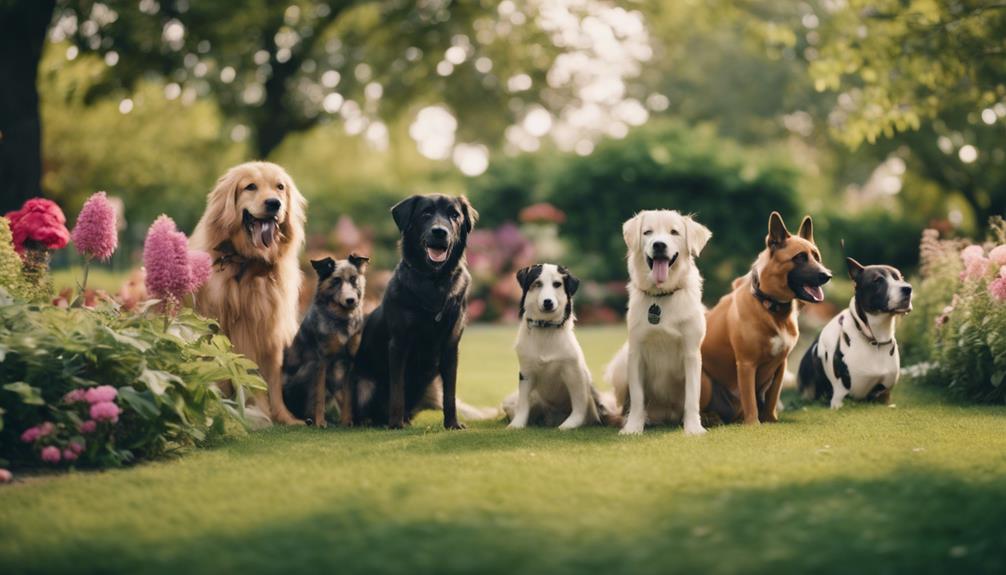
Maintaining ongoing socialization practices is essential for ensuring your adult dog remains well-adjusted and comfortable in various environments. Engaging in socialization games and enrichment activities fosters confidence and adaptability. Regularly exposing your dog to new experiences can prevent anxiety and behavioral issues.
Consider incorporating the following practices:
- Arrange playdates with other friendly dogs to encourage positive interactions.
- Visit different locations such as parks, pet-friendly stores, or outdoor events to introduce diverse stimuli.

